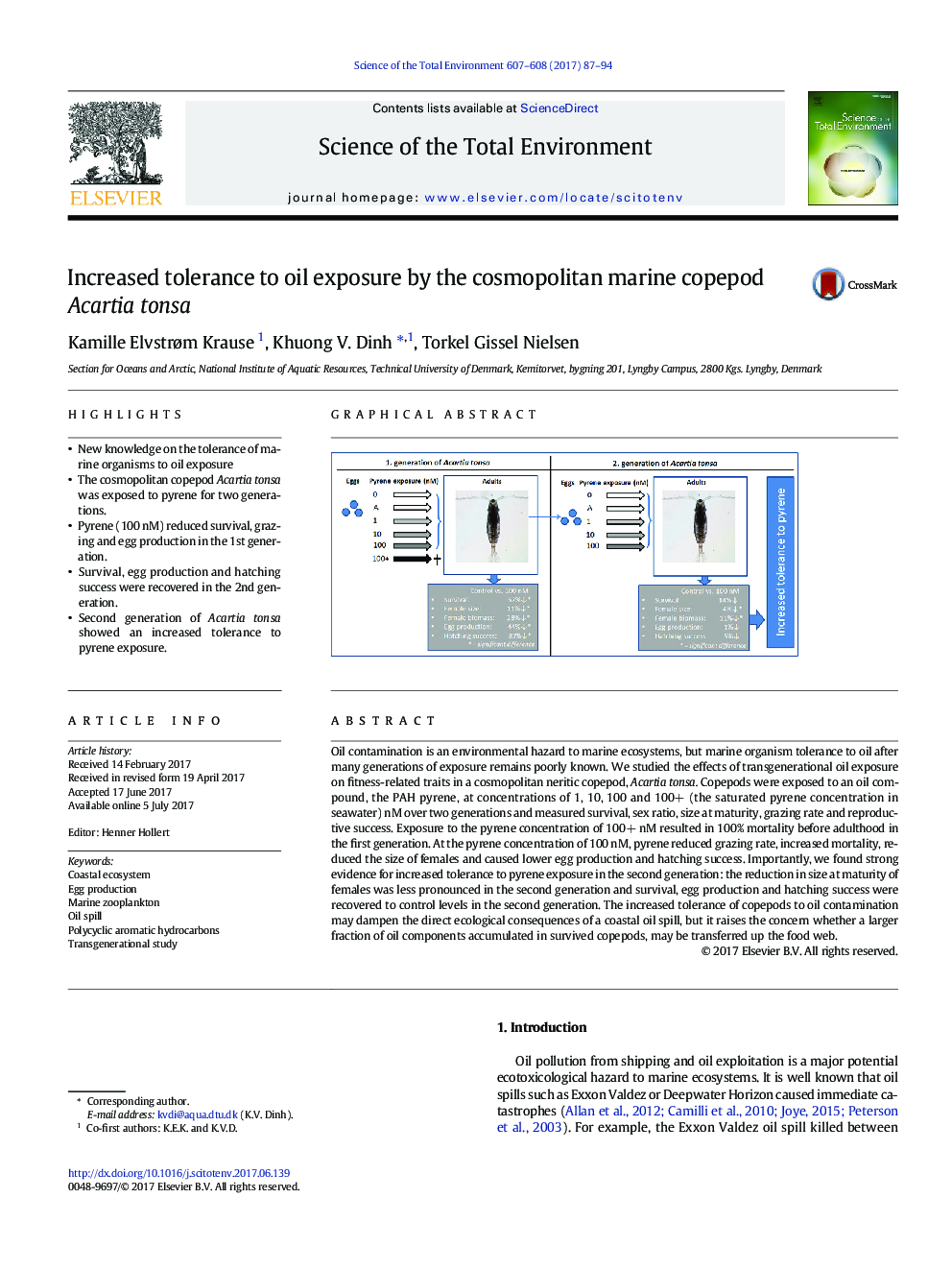| Article ID | Journal | Published Year | Pages | File Type |
|---|---|---|---|---|
| 5749967 | Science of The Total Environment | 2017 | 8 Pages |
â¢New knowledge on the tolerance of marine organisms to oil exposureâ¢The cosmopolitan copepod Acartia tonsa was exposed to pyrene for two generations.â¢Pyrene (100 nM) reduced survival, grazing and egg production in the 1st generation.â¢Survival, egg production and hatching success were recovered in the 2nd generation.â¢Second generation of Acartia tonsa showed an increased tolerance to pyrene exposure.
Oil contamination is an environmental hazard to marine ecosystems, but marine organism tolerance to oil after many generations of exposure remains poorly known. We studied the effects of transgenerational oil exposure on fitness-related traits in a cosmopolitan neritic copepod, Acartia tonsa. Copepods were exposed to an oil compound, the PAH pyrene, at concentrations of 1, 10, 100 and 100+Â (the saturated pyrene concentration in seawater)Â nM over two generations and measured survival, sex ratio, size at maturity, grazing rate and reproductive success. Exposure to the pyrene concentration of 100+Â nM resulted in 100% mortality before adulthood in the first generation. At the pyrene concentration of 100Â nM, pyrene reduced grazing rate, increased mortality, reduced the size of females and caused lower egg production and hatching success. Importantly, we found strong evidence for increased tolerance to pyrene exposure in the second generation: the reduction in size at maturity of females was less pronounced in the second generation and survival, egg production and hatching success were recovered to control levels in the second generation. The increased tolerance of copepods to oil contamination may dampen the direct ecological consequences of a coastal oil spill, but it raises the concern whether a larger fraction of oil components accumulated in survived copepods, may be transferred up the food web.
Graphical abstractDownload high-res image (286KB)Download full-size image
